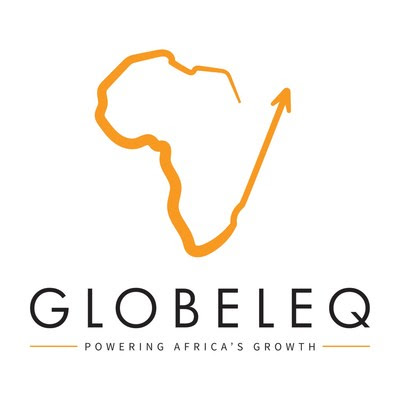LONDRES et LE CAIRE, 29 août 2022/PRNewswire/ — Globeleq, la principale compagnie d’électricité indépendante en Afrique, a signé un protocole d’accord avec l’Autorité des énergies nouvelles et renouvelables (NREA), l’Autorité générale de la zone économique du canal de Suez (SCZONE), le Fonds souverain d’Égypte pour l’investissement et le développement (TSFE) et la Société égyptienne de transport d’électricité (EETC), afin de développer conjointement une installation d’hydrogène vert à grande échelle dans la zone économique du canal de Suez.

Globeleq, en tant que développeur et investisseur principal, développera, financera, construira, possédera et exploitera le projet d’hydrogène vert. Il sera développé en 3 phases, totalisant 3,6 GW d’électrolyseurs et environ 9 GW de production d’énergie solaire photovoltaïque et éolienne. La première phase impliquera un projet pilote utilisant un électrolyseur de 100 MW, et se concentrera dans un premier temps sur les engrais verts à base d’ammoniac, tout en envisageant d’autres utilisations finales de l’hydrogène vert à moyen et long terme, y compris les carburants verts. Globeleq entend conclure des accords d’enlèvement à long terme avec des entreprises égyptiennes et internationales de premier plan et solvables, tout en soutenant leurs plans de décarbonisation.
En capitalisant sur les meilleures ressources éoliennes et solaires photovoltaïques d’Égypte, sur des infrastructures bien développées et sur le cadre réglementaire favorable aux investissements du gouvernement égyptien, Globeleq vise à produire de l’hydrogène de manière compétitive pour les exportations et le marché local. La situation géographique unique de l’Égypte, à la croisée de l’Afrique, de l’Europe et de l’Asie, avec environ 13 % du commerce mondial qui transite par le canal de Suez, place le pays en position de devenir un centre mondial pour l’énergie verte.
Globeleq investit en Égypte depuis 2003 et détient actuellement la centrale solaire photovoltaïque ARC pour Renewable Energy S.A.E. de 66 MWp située dans le parc solaire de Benban près d’Assouan. Globeleq vise à soutenir la stratégie ambitieuse du pays en matière d’énergies renouvelables en développant de nouveaux projets d’énergie solaire photovoltaïque, éolienne, de stockage d’énergie par batterie, de dessalement de l’eau de mer et d’hydrogène vert en Égypte.
L’ambassadeur britannique en Égypte, Gareth Bayley, OBE , a déclaré : « Globeleq est un investisseur britannique de premier plan, détenu à 70 % par British International Investment et à 30 % par Norfund, qui sont respectivement les institutions de financement du développement du Royaume-Uni et de la Norvège. La société investit en Égypte depuis près de 20 ans et nous nous réjouissons de la signature de ce protocole d’accord, qui souligne une fois de plus la relation solide entre le Royaume-Uni et l’Égypte. Le projet soutient également le leadership et les ambitions des deux pays en matière d’énergie renouvelable et de lutte contre le changement climatique. Nous avons hâte de continuer à travailler avec Globeleq et tous les intervenants concernés. »
L’ambassadrice de Norvège en Égypte, Hilde Klemetsdal , a ajouté : « Avec les plans ambitieux de Globeleq, la Norvège continue de renforcer ses investissements dans l’hydrogène vert en Égypte. Il s’agit d’un exemple du type de solutions que l’industrie doit adopter pour transformer la transition écologique en mesures concrètes. Nous apprécions notre solide coopération avec le gouvernement égyptien en faveur de ce virage vert et de la lutte contre le changement climatique. »
Mike Scholey, PDG de Globeleq , a indiqué : « Une action collective audacieuse et rapide est nécessaire pour mettre le monde sur une voie durable. L’Égypte est un pays clé pour Globeleq, et nous sommes heureux de soutenir l’ambitieux programme vert du gouvernement égyptien et de contribuer à la lutte contre le changement climatique. »
Waleid Gamal Eldien, président de SCZONE , a mentionné : « Le nouvel accord avec Globeleq s’inscrit dans la continuité de notre engagement à mettre en œuvre la vision de l’Égypte dans la transformation vers une économie verte. Le gouvernement égyptien a des plans ambitieux de transition énergétique, en plus d’accueillir la COP27, et des mesures actives sont prises pour faire de la SCZONE un centre majeur pour l’hydrogène vert. Nous sommes heureux de nous associer à Globeleq, l’une des principales sociétés d’énergie renouvelable au Royaume-Uni et dans le monde, et ce partenariat reflète l’intérêt des entités mondiales spécialisées dans l’investissement dans de tels projets, qui choisissent la SCZONE comme destination pour investir dans des projets de carburant verts, au service des marchés africain et international. »
Ayman Soliman, PDG du Fonds souverain d’Égypte , a déclaré : « Les partenariats dont nous sommes témoins sont une traduction de la stratégie intégrée de l’État visant à diversifier les sources d’énergie et à localiser la production d’hydrogène vert, dont tous les éléments couvrent les étapes en amont et en aval, dans le but de transformer l’Égypte en un centre régional pour l’énergie verte. Notre objectif est de maximiser l’utilisation des ressources énergétiques renouvelables de l’Égypte en partenariat avec des développeurs mondiaux spécialisés, afin de réaliser les objectifs et la stratégie du Fonds souverain d’Égypte. Nous sommes heureux de nous associer à Globeleq, qui est l’une des plus grandes sociétés britanniques internationales œuvrant dans le domaine des énergies nouvelles et renouvelables et des infrastructures, avec une attention particulière portée aux projets énergétiques en Afrique, et qui possède une vaste expérience de travail en Égypte. »
Logo – https://mma.prnewswire.com/
